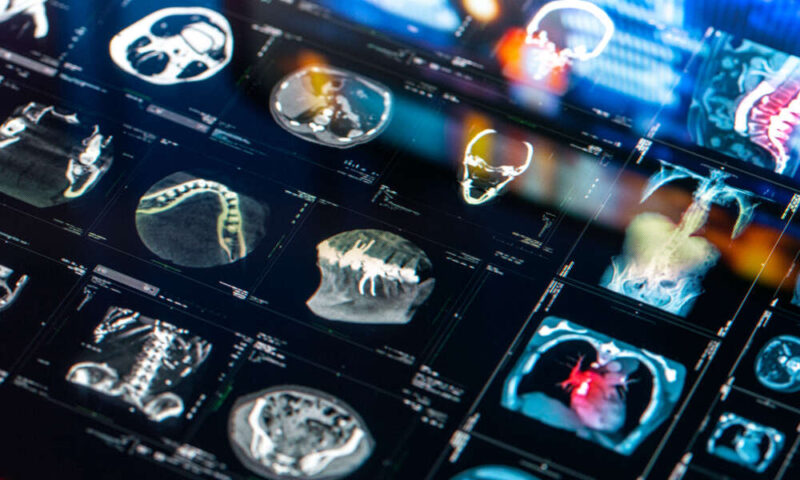
Anatomy Group Reveals Discipline’s Unethical Past to Achieve a More Inclusive Future
Hiding secrets from the past is not uncommon. Confronting those secrets on a very public stage is. In its journal, the American Association for Anatomy unflinchingly exposes its discipline’s painful past to build a more inclusive future.
The American Association for Anatomy (AAA) reckons with a complex, distressing, and sometimes unethical history in the anatomy discipline with a groundbreaking special issue of its journal, The Anatomical Record. The issue explores disturbing revelations, including historical anatomical collections that have ties to Nazi Germany, body snatchers in England, and slavery and segregation in the United States.
“Only by being fully informed and transparent can we address the transgressions of the past and build a future for anatomy that does not violate our morals,” said Jason Organ, Ph.D., and Amber Comer, Ph.D., JD, associate professors at Indiana University and coeditors of the issue, in a press release. “We applaud the American Association for Anatomy for providing the platform for this transformative subject.”
The impetus for the issue began when Organ was at an AAA meeting several years ago attending a session led by Dr. Carmine Clemente, author of one of the most widely used anatomical atlases. As Clemente spoke, he suddenly broke down into tears and recounted that in several editions of his atlas, he had borrowed images from a renowned, several-volume set commonly referred to as Pernkopf’s Atlas.
Pernkopf’s Atlas relied on depictions of victims who were murdered by Nazis specifically for experiments to use in the atlas. “It really struck me that some of these really detailed images I was studying anatomy from were made from murder victims,” Organ said.
It took Organ back to when he was at the crematorium in Auschwitz in 1994 as a high school student and he saw a dissection table. He wondered if that dissection table was similar to the one used to create the atlas. “I lost most of my family in the Holocaust,” he said. “It meant a lot to me to know that I had perhaps studied images of victims that might have been subjected to the same fate as my family.”
The Elephant in the Room
He knew he wanted to tell the world about it, so in 2015 he submitted a proposal for a symposium at AAA’s next annual meeting to discuss his findings and their connection to the Holocaust, but it was rejected. It was declined again the following year. He felt like his association, which had been so important to the development of his career, had turned its back on him.
He didn’t give up. He coordinated symposiums in Indianapolis and developed a radio show about them, which was very well received. Then he began talking with Jeffrey Laitman, Ph.D., past president of AAA and senior associate editor of The Anatomical Record. They discussed developing a special issue of the journal on the Nazi ties to anatomy in early 2020. Then, George Floyd was murdered in Minneapolis.
“We decided we couldn’t just discuss one atrocity here. We needed to open up the playbook and talk about as much of the potentially unethical history of our discipline and our association as we could,” Organ said. The work tied together with the work Organ had been doing as part of AAA’s inaugural DEI task force.
Organ credits AAA’s Executive Director Shawn Boynes, FASAE, CAE, with instilling a top-down cultural change to ensure DEI is an integral part of its mission. “It is imperative for associations to do more around DEI than what’s been spoken about the past few years,” Boynes said. “Conversations and intentions matter, but I’m still waiting for our community’s collective action to demonstrate commitment to being consciously inclusive. Without receipts for the work to advance DEI efforts large and small, progress won’t be made.”
Boynes coauthored an article for the special issue outlining ways AAA has addressed its own DEI shortcomings and the marginalization of certain groups among its membership. He also includes recommendations for other associations looking to make progress tackling their own DEI challenges. “AAA has intention, commitment, allocated resources, and receipts, but we also recognize the work to do better is ongoing,” Boynes said.
Organ said he is now proud to be a member of AAA again because it has provided a platform to expose the unethical transgressions in the anatomy discipline and find a way to move forward. “You’re not doing anyone any favors by not addressing the elephant in the room,” Organ said. “The only way to move forward from that, especially in this supercharged environment that we live in now, is to acknowledge your past and how that past can help you shape the future.”
(da-kuk/E+/Getty Images Plus)






Comments